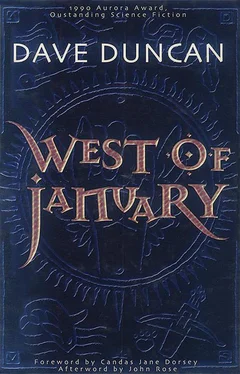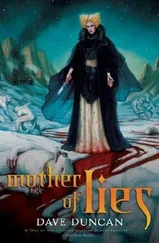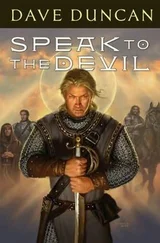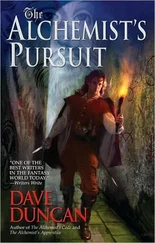Half the races of Vernier were represented in the slave pen at one time or another. Herdmen were the most common, though, and the most prized. They were huge and they were docile. Trained in absolute obedience to their human fathers and then betrayed by them, betrayed also by their Heavenly Father, deprived of the unbounded sky of their youth, herdmen went mad very quickly, but they continued to obey. The great haul of seafolk boosted the workforce greatly, but thereafter the numbers dwindled as deaths outran recruitment. New slaves were brought in from time to time by the ants’ raiding parties, and many were brought by traders, although I never saw a trader in the compound.
I learned much about Vernier from the scattered moments of conversation with men and women of other shades and shapes and sizes. But I told none of them about my plan. As an oyster locks tight about a pearl, so I closed my abused body around my tortured mind, and closed that in turn about the tiny fire of purpose that gave my existence meaning—my plan. I would go to the grasslands and there complain to the Almighty.
Die or go mad—there was no other choice. I made friends and saw them die or go mad like me. I had sex with women who were forbidden to refuse, gaining small relief and no pleasure.
My plan ran around and around in my head when I was awake. Asleep, I was consoled by a recurring dream, where ants became snarks. Every sleep I dreamed it at least once. Leading an army of seamen, riding on great ones, I ravaged the ants’ nest. How wonderful were those dreamed great ones! They bounded in and out of the hard clay of the dream compound as if it were water, while I skewered ants by the dozen on a weightless and untiring spear, and panthers by the score. All the ants in my dream, though, had Hrarrh’s face, which seemed curious even to me.
Then I would awaken to perform the most arduous or disgusting tasks eagerly and without hesitation. Even small children could give orders to a slave, and throwing rocks at us while we slept was their favorite sport.
I saw shuckings. Once the victim was a woman, and after that even Anubyl did not seem so bad to me.
How long?
I don’t know how long I was a slave for the ants, but in my memories it seems to me now that the center of my life is missing, that what should have been the peak of my manhood is marked by a gaping black wound.
I DO NOT REMEMBER LEAVING THE ANT’S NEST, but it was Hrarrh’s doing.
Once we had been friends of a sort, two slaves muttering careful asides to each other and watching for watchers. Then we had been slave and ant, seeing each other at a distance, never speaking, living in separate worlds. Suddenly we were slave and master.
The workers hated a change of supervisor. Even those with a reputation for decency were always hard on a new gang for the first few shifts. Even more we hated the beginners, for they had to prove to the other supervisors that they were tough also. Hrarrh was one of those, and it was my misfortune to be assigned to his first shift. Nor did I like the look of his panther. It was fully grown now, but it twitched restlessly, as if poorly trained or not completely under his control.
Of course nobody spoke. We stood in a line while he looked us over—the usual six men and one woman, all standing like dead trees, eyes downcast. A woman or boy was always included to carry off the buckets and keep tally.
He began with her. “Tell me how each of these cripples did on the last shift.” Then he walked along the line with his panther pacing at his heels, and she called out the number of buckets each man filled. I had done twelve, everyone else the usual ten. He paused for a while in front of me but did not speak. I watched the ground until he moved away.
“For me,” he said, “each of you will do two more than last time. If not for me, then for Chuckles here. I should warn you, though—she’s inexperienced and she tends to cut deep. Last man at the face gets two strokes to start with, so run!”
We ran.
Very few men could achieve twelve, no matter what the threat. Fourteen was an impossibility. Fortunately our worksite was not far into the mine. Unfortunately it was a bad one. The vein was thin, the air bad, the roof almost too low for the buckets, and a man could barely raise his head at all. I usually worked there without my helmet. I banged my head often, but it eased the strain on my neck.
Flat on my belly, I flailed my pick against the rock in panic. I scrabbled up the cuttings and crammed them into a bucket, in reckless disregard for the scrapings of my hands against the roof. Could Hrarrh have been serious? Perhaps it was only the others he had hoped to inspire. Surely he could not expect any man to produce fourteen full buckets? Surely my long-ago kindness would carry some weight? He would not be hard on me if I failed—would he?
Fourteen?
Between the clinkings of my own pick, the faint sounds from the other rooms were an almost continuous barrage, so the others must have believed he was serious. But fourteen? I heard a few yells as time wore on, as the men tired and Chuckles was sent in to inspire them.
When I was topping off my thirteenth bucket, my candle died. That was the signal to stop. From the corridor outside drifted sounds of begging and screaming as Hrarrh carried out his threats against those who had not managed to fill twelve. I continued to work in the dark, waiting to be called out. Perhaps thirteen and a quarter would satisfy him.
Thirteen and a half…
Silence outside, and inside only the sound of my pick and strident breathing…
Thirteen and three-quarters. Why did he not call? Had he forgotten me? But a faint flicker from his lantern showed that he was still out there.
Fourteen!
It was done. I wriggled wearily to turn around on the gritty rock, struggling with my pick and two buckets of ore. I crawled painfully forward, pushing them, and emerged into the corridor at Hrarrh’s feet. I rose to my knees, fighting back the dizziness that always came after lying so long on my belly. Then I just stared at his boots, feeling so exhausted that I did not think I would care very much if he sent me out to be shucked.
For a while neither of us spoke. Instead of sitting or crouching beside him, the panther was pacing restlessly to and fro. Then the familiar voice said, “You are still a fool.”
I did not look up. “Why, master?”
“Have you ever heard of a man digging fourteen buckets in one shift?”
“No, master.”
“Why would I order you to do the impossible?”
“I don’t know, master.”
“Put it back.”
In horror I tilted my head to look up at him, although that was forbidden. Put it back? After all that work and pain? My knees, my hands, my elbows were raw. In the flickering light there was nothing of his face visible between beard and helmet except a glitter from his eyes.
He sighed. “No man can do fourteen! But you have—so now they’ll expect you to do it every time. For your own sake, slag, put the ore back where you got it. Now!”
I was so exhausted and so enraged that I did another impossible thing: I hesitated to obey an order.
Then—at last—he started to laugh. “Knobil! I wanted to talk to you! Alone. How else could I do that? I never dreamed you’d actually manage to fill fourteen buckets, you dumb herdman! The next shift’ll be here soon—now move!”
I gasped with relief. “Sorry, master…at once…” And so I pushed the two heavy buckets all the way back to the face and left them there. The next worker was going to have a pleasant surprise.
I crawled back out to the corridor and knelt once again before him, expectant, stirred by a growing excitement. What vital news could he have that he needed to impact to me alone?
Читать дальше







